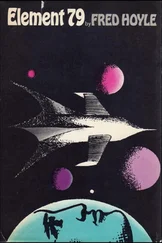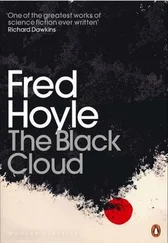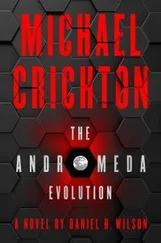“Good-bye,” he said quietly, waiting for her to go.
She stood for a moment, trying to think of something else to say, and at that moment Reinhart appeared in the doorway.
“Hallo, John.” He looked from one to the other of them. “Hallo, Miss Adamson.”
She walked out between them without speaking, blinking her eyes to stop herself from crying. Reinhart turned after her as she went, but Fleming shut the door.
“Did you know about that woman?”
“Yes.”
Reinhart walked across to the bed and sat down on it. He looked old and tired.
“You couldn’t have told me?” Fleming said accusingly.
“No, John, I couldn’t.”
“Well.” Fleming opened drawers and shut them again, to make sure they were empty. “You can hire someone you can trust in my place.”
The Professor looked round the room.
“Can I have a drink?” He stroked the tiny fingers of one hand across his forehead to revive himself. The second interview with Geers had not been easy. “What makes you think I don’t trust you?”
“Nobody trusts us, do they?” Fleming rooted about among the discarded bottles. “Nobody takes a blind bit of notice what we say.”
“They take notice of what we do.”
“Brandy be all right?” Fleming found a drop in the bottom of a flask, and slopped it into a tumbler. “Oh yes, we’re very useful mechanics. But when it comes to the meaning of it—having an idea of what it’s about—they don’t want to know.”
He held the glass out.
“Have you a drop of water?” Reinhart asked.
“That we can do.”
“And you?” Reinhart nodded to the bottle.
Fleming shook his head.
“They think they’ve just got a convenient windfall,” he said, running water from his wash-basin tap. “And when we say this is the beginning of something much bigger they treat us like criminal lunatics. They put their watch-dogs on us—or their watch-bitches.”
“There’s no need to take it out on the girl.” Reinhart took the glass and drank.
“I’m not taking it out on anyone! If they can’t see that what we picked up by a sheer fluke is going to change all our lives, then let them find out in their own way. With any luck they’ll foul it up and nothing will come of it.”
“Something has come of it.”
“Dawnay’s monster?”
“You know about that?”
“It’s a sub-program, merely—an extension of the machine.” Fleming looked into an empty cupboard, but his attention was beginning to drift. “Dawnay thinks the machine’s given her power to create life; but she’s wrong. It’s given itself the power.”
“Then you must stay and control it, John.”
“It’s not my job.” He slammed the cupboard door. “I wish to God I’d never started it!”
“But you did. You have a responsibility.”
“To whom? To people who won’t listen to me?”
“I listen to you.”
“All right.” He roamed round the room, picking up oddments and throwing them into the waste-paper basket. “I’ll tell you what you’re up against: and then I go.”
“If you’ve anything constructive to say—” The drink had put some strength back into Reinhart’s voice.
“Look—” Fleming came to rest at the end of the bed and bent over it with his hands on the board at its end, leaning his weight on his arms and concentrating, at last, not on the room, but on what he was saying. “You’re all so busy asking ‘What?’—‘What have we got?’, ‘What does it do?’—no-one except me asks ‘Why?’. Why does an alien intelligence two hundred light-years away take the trouble to start this?”
“We can’t tell that, can we?”
“We can make deductions.”
“Guesses.”
“All right—if you don’t want to think it out!”
He straightened up and let his arms flop down to his sides. Reinhart sipped his brandy and waited for him. After a minute Fleming relaxed and grinned at him a little sheepishly.
“You old devil!” He sat down beside the Professor on the bed. “It’s a logical intelligence, wherever and whatever it is. It sends out a set of instructions, in absolute terms, which postulate a piece of technology, which we interpret as this computer. Why? Do you think they said: ‘Now, here’s an interesting piece of technical information. We’ll radio it out to the rest of the universe—they might find it useful’?”
“You obviously don’t think so.”
“Because where there’s intelligence, there’s will. And where there’s will there’s ambition. Supposing this was an intelligence which wanted to spread itself?”
“It’s as good a theory as the next.”
“It’s the only logical theory!” Fleming banged his fist on his thigh. “What does it do? It puts out a message that can be picked up and interpreted and acted upon by other intelligences. The technique we use doesn’t matter, just as it doesn’t matter what make of radio set you buy—you get the same programmes. What matters is, we accept their programme: a programme which uses arithmetical logic to adapt itself to our conditions, or any other conditions for that matter. It knows the bases of life: it finds out which ours is. It finds out how our brains work, how our bodies are built, how we get our information—we tell it about our nervous system and our sensory organs. So then it makes a creature with a body and a sensory organ—an eye. It’s got an eye, hasn’t it?”
“Yes.”
“It’s probably pretty primitive, but it’s the next step. Dawnay thinks she’s using that machine, but it’s using her!”
“The next step to what?” Reinhart asked casually.
“I don’t know. Some sort of take-over.”
“Of us?”
“That’s the only possible point.”
Reinhart rose and, walking slowly and thoughtfully across the room, put his empty glass down with the others.
“I don’t know, John.”
Fleming appeared to understand his uncertainty.
“The first explorers must have seemed harmless enough to the native tribes.” He spoke gently. “Kind old missionaries with ridiculous topees, but they finished up as their rulers.”
“You may be right.” Reinhart smiled at him gratefully; it was like old times, with both of them thinking the same way. “It seems an odd sort of missionary.”
“This creature of Dawnay’s: what sort of brain has it?” Reinhart shrugged and Fleming went on, “Does it think like us, or does it think like the machine?”
“If it thinks at all.”
“If it has an eye, it has nerve-centres—it certainly has a brain. What kind of brain?”
“Probably primitive too.”
“Why?” Fleming demanded. “Why shouldn’t the machine produce an extension of its own intelligence: a sub-computer that functions the same way, except that it’s dependent on an organic body?”
“What would be the value?”
“The value of an organic body? A machine with senses? A machine with an eye?”
“You won’t persuade anyone else,” said Reinhart.
“You needn’t rub that in.”
“You’ll have to stay with it, John.”
“To do what?”
“To control it.” Reinhart spoke flatly: he had made the decision some hours before.
Fleming shook his head.
“How can we? It’s cleverer than we are.”
“Is it?”
“I don’t want any part of it.”
“That would suit it, according to your theory.”
“If you don’t believe me—”
Reinhart half raised a little hand. “I’m prepared to.”
“Then destroy it. That’s the only safe thing.”
“We’ll do that if necessary,” Reinhart said, and he walked to the door as if the matter were settled.
Fleming swung round to him.
“Will you? Do you really think you’ll be able to? Look what happened when I tried to stop it: Dawnay threw me out. And if you try to they’ll throw you out.”
Читать дальше












